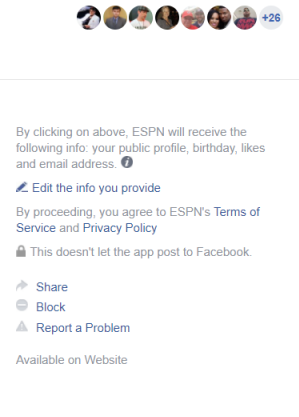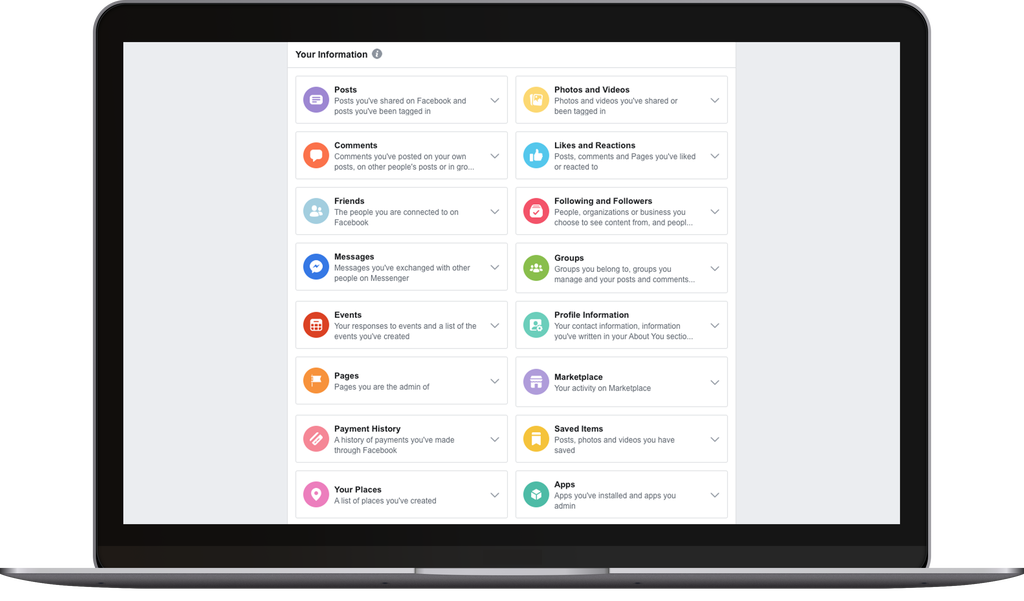Spotlight
News You Need to Know Now
Good morning. It’s Monday, April 23rd. Alphabet, Google’s parent company, declares earnings after the market closes this afternoon. Analysts expect to learn more about the value of the company’s investment in Uber and several other investments including Credit Karma and Auction.com. Meanwhile, Facebook reports Wednesday afternoon. Expect lots of news about both companies.
Today’s Spotlight takes about 4 minutes to read.
Highlights
- Facebook privacy is still making news. We have lots of coverage on web privacy for you this week.
- Changes to Google Search, Maps, and Chat are done or in the works.
- We have a must-see video showing how easily people can manipulate video, a must-read article about a data broker, and a can’t-miss series about regretful Internet execs.
Facebook to Ask About Privacy Choices
The company announced this week that all users regardless of where they live will be asked how they will allow Facebook to use their data. “We’ll ask everyone to make choices about ads based on data from partners [and whether you want to continue sharing] political, religious, and relationship information on your profile,” the company promised in a statement.
Facebook faces a gauntlet that includes declining approval ratings, tough privacy laws from the EU that start in May, and a lingering malaise expressed by analysts that next quarter’s ad revenues will slip.
The video below is not from Facebook. It was created by comedian Jordan Peele and published on Buzzfeed this week to show how easily videos can be altered. Israeli technologist Aviv Ovadya spoke for a world skeptical about video and audio proof by asking, “What happens when anyone can make it appear as if anything has happened…”
This video has NSFW language AND it’s by an Obama supporter. But it also shows how easy it is to have software originally used by people to fake porn creating hoax videos. Stick with it in a private space. It’s only 73 seconds and shows how any of us can be taken in by a good fake.
More Privacy
We told you weeks ago about analytics firm Palantir and their secret program with the New Orleans Police Department. Bloomberg followed up on The Verge’s original reporting with “Palantir Knows Everything About You“. Police programs in New Orleans, New York, Chicago, and Los Angeles are studied as is a JPMorgan finance program.
Big quote from a JPMorgan cyber security exec in this must-read article: “Nefarious ideas became trivial to implement; everyone’s a suspect, so we monitored everything. It was a pretty terrible feeling.”
Regretful Execs
New York magazine has been running a series called “The Internet Apologizes“.
We’ve written about Facebook’s first President and a former Google ethicist making startling comments about these world-changing organizations. Last week we shared news from Jaron Lanier’s TED talk that included this line about Facebook and Google, “I can’t call these things social networks anymore. I call them behavior modification empires.” If you’ve lost a geek like Lanier, you’re tech-cred is crashing.
That’s the “techlash” that Axios was first among mainstream media to start calling out last year. Now New York’s Internet Apologizes series demands your attention. Look for a longer piece by Lanier. There’s also former Reddit exec Dan McComas saying,” …my time at Reddit made the world a worse place.”
There’s also early Facebook investor Roger McNamee who says, “You have created a persuasion engine unlike any created in history.”
It’s big stuff. Many people who built what exists online today are expressing remorse.
Spotlighted – the Google Edition
- Problems ahead for Google. A study claims that Android apps in the Google Play store may improperly be collecting data from kids under the age of 13. WaPo article with the news
- Ghttps://www.washingtonpost.com/news/the-switch/wp/2018/04/16/thousands-of-android-apps-may-be-illegally-tracking-children-study-finds/?utm_term=.375897d82d6f&wpisrc=nl_tech&wpmm=1oogle announced it made another “broad core change” to its search rankings this month. That’s two in five weeks. If you’re seeing traffic fluctuating at your org’s website, look at the details. Or call us. We’re pretty good at that.
- Google is also removing many items from its “autocomplete” function. That’s the part of its software that tries guessing what you want to search for as you type. Spam, adult content phrases, and other non-family friendly phrases are all getting axed.
- Google is also said to be introducing map directions that include landmarks. What a great idea. “Turn right at the Burger King” is a lot easier to deal with then “Turn right in 600 feet”.
- And finally, you know those text/SMS messages that have been with us forever? A report in The Verge focuses on Google convincing carriers selling Android phones to revamp texting.




